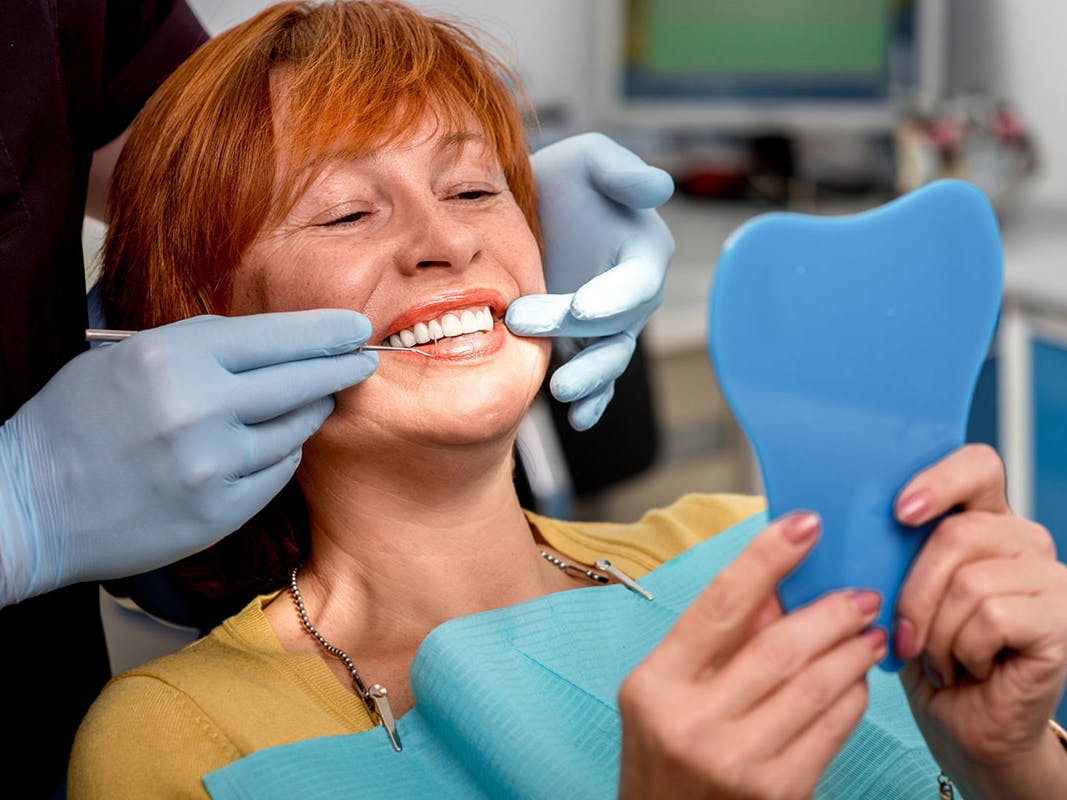
Most Medicare Advantage plans include routine dental care like biannual exams and cleanings.
Your oral health can help reveal information about your overall health, just as problems in your mouth can affect the rest of your body. Not only can poor oral hygiene lead to infections, tooth decay, gum disease, and other issues in the mouth. It can even worsen conditions like cardiovascular disease and diabetes.
Because dental health is so important to your overall health, most Medicare Advantage plans offer some dental coverage. This includes Aetna’s Medicare Advantage (MA) plans. Read on to learn more about Aetna’s MA plans, how the dental plans work and what is covered, and other options for coverage should you need it.
Aetna Medicare Advantage plans
Aetna’s Medicare Advantage (Part C) plans cover everything Original Medicare does and more, including things like:
· Dental, hearing, and vision benefits
· Over-the-counter benefits
· Meals programs
· Fitness memberships
· Concierge services
· Prescription mail order
· Prescription drug coverage (Part D)
· And more
The specific benefits covered depends on each individual plan, so beneficiaries should always check their Evidence of Coverage (EOC) for more information.
Aetna has three main Medicare Advantage plans beneficiaries can choose from:
· Medicare Advantage HMO: With this plan, you’ll choose a primary care provider (PCP) to help coordinate your care within a specific network of providers, including doctors, hospitals, and pharmacies. In most cases, you must use these network providers or the services will not be covered and you’ll have a higher out-of-pocket cost. You may also be required to get a referral to see a specialist.
· Medicare Advantage HMO-POS: These plans may offer more choices than a traditional HMO plan. While you’ll still choose an in-network PCP and will likely be required to use participating providers for medical care, you may have more flexibility to go to licensed dentists either in- or out-of-network (though you may pay more for out-of-network care). Some plans may also require a referral to see a specialist.
· Medicare Advantage PPO: With a PPO plan, you can see any in- or out-of-network provider as long as they accept Medicare and Aetna’s plan terms. You don’t need a referral for a specialist, and you are not required to have a PCP. While you may pay more using providers outside of the network, PPO plans give the most flexibility and freedom to choose different providers.
It’s important to compare all of your Medicare Advantage options before enrolling to ensure you’re choosing the right one for you. Use our fast and easy online Find a Plan tool to learn more about plans available in your area.
How do Aetna’s dental plans work?
If you have Aetna’s HMO plan, you’ll likely have to choose an in-network dentist for coverage of all dental services. Aetna’s HMO-POS and PPO plans may provide more flexibility, giving you the option to choose an out-of-network dental provider for care (though keep in mind you may pay more).
The three types of dental coverage Aetna offers include:
· Network plans: Require you to see a network provider. You may have a different network for medical benefits than you do dental.
· Direct member reimbursement (DMR): An annual allowance to see any licensed provider in the U.S. Members pay for services out-of-pocket, then submit a form to get reimbursed up to the plan’s allowance.
· Optional supplemental benefits (OSB): If your plan doesn’t already include dental coverage, OSB allows members to purchase dental benefits or increase their coverage with an additional monthly premium.
Most plans cover basic dental services like cleanings and exams, though plans that offer DMR benefits cover additional dental procedures and more comprehensive services. Again, check your EOC for plan-specific details and costs.
Aetna dental benefits
Plans that offer benefits through a network may cover benefits like:
· Oral exams
· Routine cleanings
· X-rays
· Fillings
· Extractions
· Root canal treatments
· Crowns, bridges, and implants
· Dentures
Preventive services (like cleanings and exams) are covered at 100% on most plans, so you would owe $0. Other comprehensive services (like fillings and extractions) have varying costs depending on the plan, but in many cases, you’ll owe some costs out-of-pocket.
Note you may have limits on the number of preventive care visits you can have each year, and in some cases, caps on coverage for other services. Most plans also have a benefit maximum, which limits the amount the plan will pay for covered services. Once you reach that maximum, you must pay for services on your own.
Does Original Medicare cover dental?
Original Medicare, made up of Part A (hospital insurance) and Part B (medical insurance), does not cover any routine dental care like X-rays, fillings, cleanings, or exams. Beneficiaries who only have Original Medicare will have to pay for these procedures 100% out-of-pocket, though these costs can be high.
The exception is if you need a medical dental procedure while you’re in the hospital, such as during jaw surgery due to an injury or cancer. In these cases, Medicare may pay for dental services.
Other dental coverage options
One way to get dental coverage is by enrolling in a Medicare Advantage plan. However, if the plan you choose (or that is available in your area) doesn’t cover what you need, there are some other options.
· Health Insurance Marketplace: One way to explore coverage options is through the Health Insurance Marketplace. In some cases, separate dental plans are offered. You would have the option to choose between high or low coverage levels, each with different premiums, co-pays, and deductibles.
· Dental vision and hearing insurance: Also known as DVH insurance, these policies are a great option if you prefer to stay with Original Medicare.
· Private insurance carrier: Some larger dental insurance providers offer individual dental insurance options. Coverage and costs vary by plan.
· The Bureau of Primary Health Care: A service of the Health Resources and Services Administration (HRSA), this supports federally funded community health centers that provide free or reduced-cost services, including dental care.
· Dental Schools: Some dental schools have clinics that allow dental students to treat patients and gain experience while providing care at a reduced cost. Dental hygiene schools may also offer low-cost preventive care.
You can also check with your state or local health department to learn of any other programs in your area that may offer reduced-cost or free dental care.
Additional resources
Speak with a Licensed Insurance Agent
Mon-Fri 8:00am-8:00pm | Sat 9:00am-5:00pm EST



